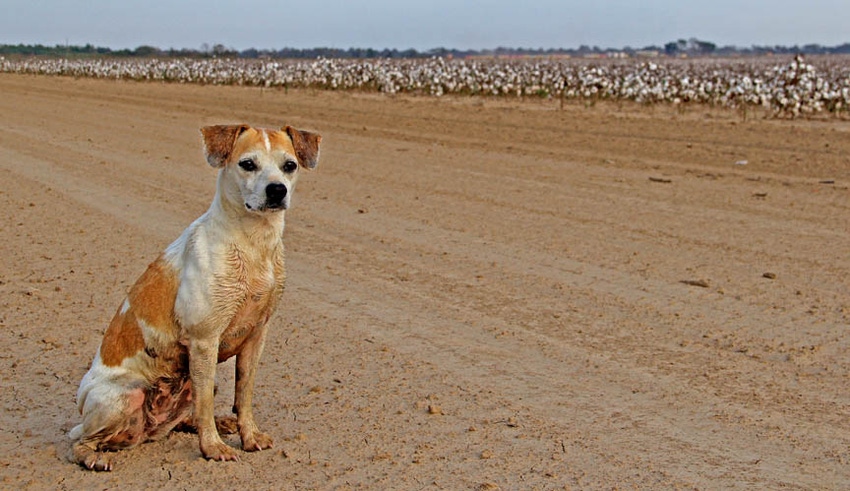August 6, 2013

Forget cultural sensitivity; the dog meat markets in China are a wretched industry. Despite a shift in China’s cultural mores, the dog meat trade is thriving — even celebrated in some areas.
Dog consumption has long historical legs in China, and several other Asian countries. From the New York Times in 1897: “In Manchuria and along the Mongolian borders of China there are thousands of farms on which nothing is raised but dogs, of a breed peculiar to this region. Each proprietor keeps several hundred of them. They are of a large size, and when eight months old are killed, usually in mid-winter, for the sake of their skins.”
But it’s not 1897 any longer and “dog farmers” are still in business. Even as China’s middle class expands and pet ownership climbs, the dog meat trade is legal. Beijing has scores of restaurants that dish up dog meat stew; there is nothing underground about the dog trade. Dogs trussed up for butchering and dogs crammed in cages: a common sight in many Chinese markets.
Dog flesh, often referred to as “fragrant meat” is believed to have medicinal qualities: blood circulation, health boosts, and greater male fertility. (All the usual suspects; every market meat in China seems to cure impotence.)
Fan Xiantao owns a chain of dog meat restaurants in China. On live Shanghai television, Xianto said, “I’ve been butchering dogs since I was eight years old and I still do it now. Do you know how many dogs I butcher every year? No less than 100,000.” Xianto also told NPR how the dogs are killed: “The way we butcher dogs is not very cruel. We have a traditional method that’s very effective. Normally, we club them. We hit them in the head and kill them instantly.” Xiantao’s killing method is in line with the folk belief that clubbing a dog to death enhances the meat flavor due to surging adrenaline.
It’s a glaring irony that while dog meat consumption continues and China has almost no animal cruelty laws on its books — dog ownership is rising. It’s a scenario filled with contradictions as Damien Ma writes in The Atlantic: “While many Chinese dogs owners think there is a contradiction between eating dog meat and owning a dog, others do not … one of my subjects has a small dog he adores, but at the same time he owns a Korean-Chinese restaurant where he serves dog meat on occasion.”
The contradictory sentiment is echoed in the NYT: ‘“We still eat dog, but not this kind of dog,’ Liu Ming, a pet shop salesman said, pointing to a toffee-colored puppy with floppy ears on sale for about 500 yuan, or $70. ‘We eat much bigger dogs.’”
Dog meat festivals
Where do the dog markets get their fare? Some are strays or simply stolen, but many are bred in a mill process solely for consumption. The number of dogs consumed in China each year is in the millions, possibly as high as 10 million according to some estimates. From the NYT: “The meat, culled from farmed animals that are mixtures of Chinese dogs and St. Bernards or other big breeds, are served stewed, roasted, or sliced in a hot pot.”
Yulin, a city in Guangxi province, famed for its dog-meat culture, features a yearly festival “which involves the mass consumption of dog-meat hotpot serves with lychees and strong grain liquor,” according to The Guardian. Approximately 10,000 dogs are killed for the one-day festival and animal activists claim many of the dogs are stolen. City officials offered assurances that all the Yulin festival dogs are raised by local farmers.”
There is certainly an element of class warfare at play. China’s burgeoning middle class may be viewing dogs in a new light, but those left behind — the peasant class — haven’t take the same shine. In 2011, the Washington Post reported that a Chinese man posted online threats to kill a dog every day until animal rights groups gave money to the poor as well. “I felt I had to do something to represent the grass-roots people. I grew up in a poor village. We raised one dog to watch the door and one to be killed in the Lunar New Year because we were too poor to buy pork. I don’t understand what’s wrong with that,” said Zhu Guangbing.
Dog consumption is tangled up in history, cultural shifts, class warfare, and the free market. Complex issues notwithstanding, the “fragrant meat” trade is simply vile.
(See here and here for Daily Mail photos of market-bound dogs.)
Follow me on Twitter: @CBennett71
Blog archive
Bull market, bitter legacy for opium farmers
Buffalo bone fertilizer — forgotten days of agriculture
Agriculture waiting on Silicon Valley moment
Brad Kelley, the farm boy with 1 million acres
Pigeon racing the new sport of kings
Agriculture apocalypse just around bend, again
DIY biotech a glowing minefield for USDA
Meteorite find a golden harvest for farmer
Wild dog plague crushing livestock industry
Days of wine auctions and gay marriage
Agriculture's burden of technological intolerance
Nuggets of wisdom from the March Against Monsanto
Farmer’s death puts national focus on killer bees
Cliff Young — the farmer who outran the field
Wine skeptic takes on climate change report
PETA drones a trophy prize for US hunters
Biggest wine hoax in history reveals trade secrets
You May Also Like




